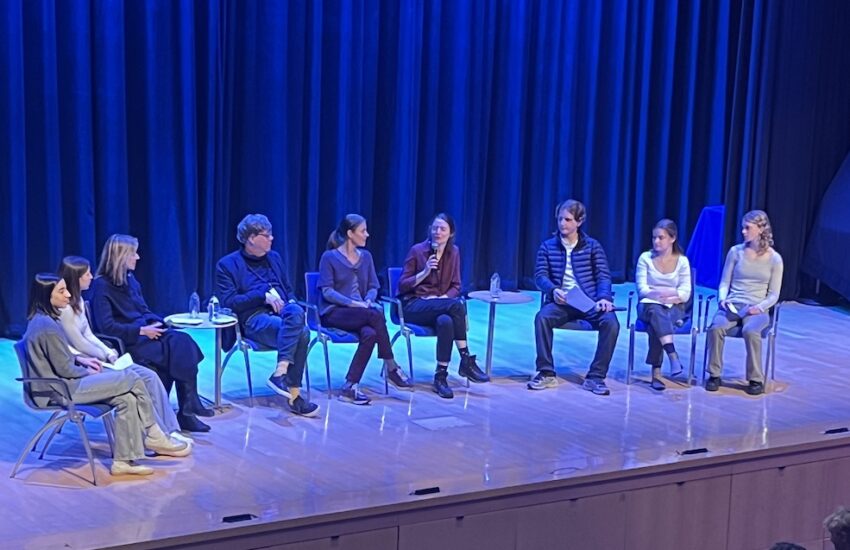As part of the Lingua Franca project, the magazine of the Lycée Français de New York’s World Languages Department, eleventh graders had the unique opportunity to meet three prominent French journalists based in the United States: Arnaud Leparmentier (New York correspondent for Le Monde), Claire Levenson (contributor to Marianne and Slate.fr), and Solveig Godeluck (New York correspondent for Les Échos). This engaging discussion kicked off the work on the fourth edition of our next issue!
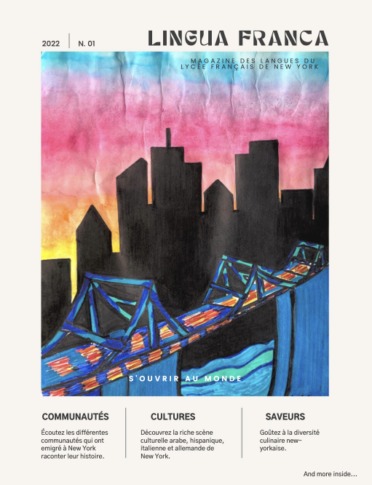
A panel moderated by student journalists
The event, organized by Caroline Roquain, took place in the auditorium and was moderated by Pascale Richard, a former journalist and now head of the Lycée’s Cultural Center. Five students—Alixe, Jasmine, Lea, Nathan, and Victoire—had prepared questions ahead of time with the guidance of their teachers, Nour Bousmah and Najma Moratti. The students then had the chance to interview the journalists about their careers and the profession. Some of the students are already involved in journalism through L’œil du Lynx, the Lycée’s student newspaper.
After hearing about the journalists’ diverse careers, the students asked a range of questions, focusing on two main areas: journalistic techniques and ethical issues, including the role of pluralism in the media. The conversation offered valuable insights into the field and provided practical advice for our journalists in the making.
Writing to Expand Knowledge
The journalists stressed the importance of precise and thoughtful writing. A well-crafted article should not only be well-written but should also offer the reader new insights, helping them better understand the world. Finding a fresh angle, stepping back from the story, and considering the reader’s perspective are key skills, they all said. Solveig Godeluck reminded students never to underestimate their readers, who, by virtue of reading the article, are already engaged in the process of seeking out knowledge and information.
The Art of the Hook
The opening of an article is crucial: “The first two sentences should grab the reader’s attention,” explained Arnaud Leparmentier. A strong anecdote or compelling opening line can instantly engage the reader and encourage them to keep reading.
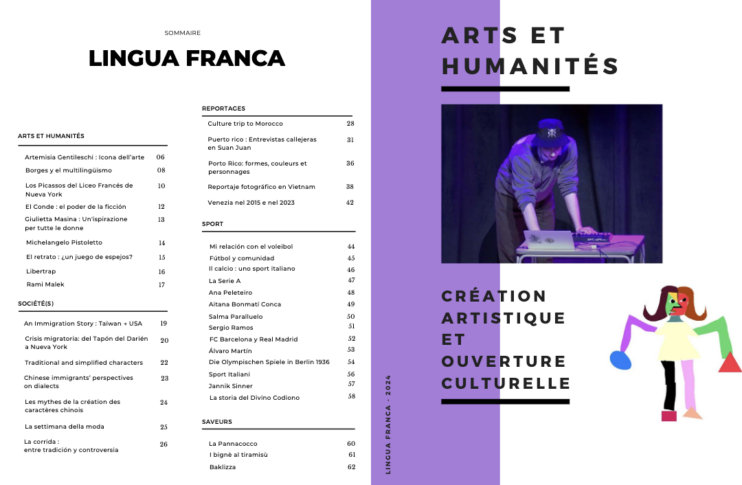
Balance and Precision in Tone
The journalists emphasized the importance of maintaining balance and avoiding exaggeration: “It’s important to temper your tone and maintain a measured approach,” they advised. They also warned against overloading an article with adjectives and adverbs, which can compromise its objectivity and credibility.
The Importance of Multiple Perspectives
The conversation also touched on the importance of pluralism in the media. A publication must offer a range of perspectives to enrich the discussion and deepen the audience’s understanding of the issues. While they acknowledged that absolute neutrality is impossible, the journalists stressed the importance of avoiding a “one-size-fits-all” perspective and instead encouraging critical thought in the reader.
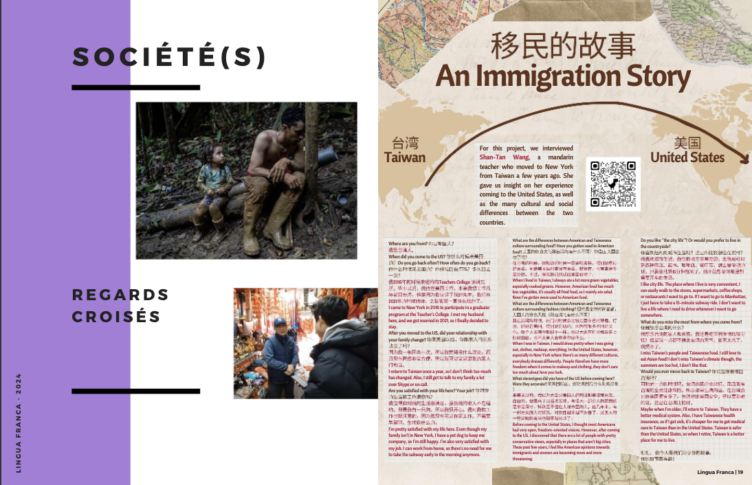
Inspiring Citizens of Tomorrow
This event gave students a clear view of the challenges and responsibilities that come with being a journalist. It was a huge success, as expressed by student Saïd: “I felt the journalists were really engaged with the audience and passionate about their work. They gave us a lively and personal look into their world as journalists.” Another student, Marie, especially appreciated the chance to learn about different approaches to journalism and varied working methods.
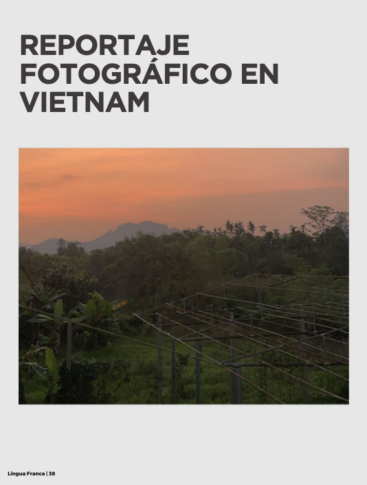
By working on Lingua Franca, the students will have the opportunity to apply these lessons as they produce the magazine’s next edition, which will focus on the theme of “Heritage.”
A big thank you to the entire modern languages team, as well as to Pascale Richard, Caroline Roquain, and Nour Bousmah, for organizing such an insightful event.
About the Author :
Mélanie Stouff has been a Secondary librarian at the Lycée since 2018. She holds certification in library science and studied literature at the Maison d’Education de la Légion d’honneur, as well as art history at the École du Louvre. She has a degree in English from the University of Bordeaux, studies which included a year at the University of Oklahoma.

